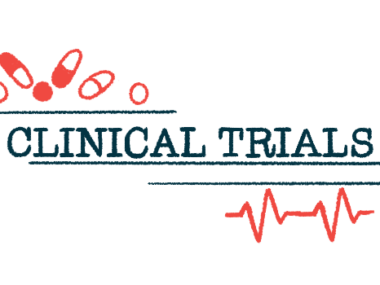Zetomipzomib found safe in Phase 2a trial for autoimmune hepatitis
Top-line data from 24 adult participants expected in 2025
Written by |

The safety monitoring committee of a Phase 2a clinical trial testing zetomipzomib in people with autoimmune hepatitis has found no major safety issues with the experimental therapy to date, and recommends the study proceed without modification.
The recommendation “strengthens our confidence in the potential for zetomipzomib to be a meaningful treatment for patients living with autoimmune hepatitis,” Chris Kirk, PhD, CEO of Kezar Life Sciences, zetomipzomib’s developer, said in a company press release.
The U.S.-based trial, called PORTOLA (NCT05569759), has completed enrollment of 24 adults with autoimmune hepatitis, and with the committee’s recommendation, top-line data are expected in the first half of 2025, Kezar noted.
Kezar discontinuing zetomipzomib clinical development for lupus nephritis
The company simultaneously announced it was focusing its zetomipzomib program only on autoimmune hepatitis, and is discontinuing the therapy’s clinical development for lupus nephritis, a type of kidney inflammation that commonly occurs in people with the autoimmune disorder lupus.
“A focused development effort in AIH [autoimmune hepatitis] extends our cash runway and provides flexibility as we work to bring zetomipzomib forward as a treatment for patients living with this life-threatening disease,” Kirk said.
Hepatitis refers to inflammation in the liver. While it is usually due to a viral infection, liver inflammation in autoimmune hepatitis occurs because the body’s immune system launches an inflammatory attack targeting the body’s own healthy liver tissues.
Anti-inflammatory medications called corticosteroids are the current main treatments for autoimmune hepatitis, but their long-term use is associated with serious side effects.
Zetomipzomib, also known as KZR-616, is a small molecule designed to block the activity of the immunoproteasome, a complex of proteins that’s present only in certain blood cells and at sites of inflammation. By suppressing this inflammatory complex, the experimental therapy aims to lessen inflammatory and immune pathways that drive autoimmune hepatitis.
The Phase 2a PORTOLA study was launched last year to test zetomipzomib in adults with autoimmune hepatitis who don’t respond well to standard corticosteroid treatment.
Participants were randomly assigned to receive weekly under-the-skin injections of zetomipzomib (60 mg) or a placebo for about six months. All participants continue taking corticosteroids for the first few months, then taper off the standard medications.
PORTOLA testing if zetomipzomib can induce complete disease remission
One of the trial’s main goals is to see whether zetomipzomib is better than the placebo at inducing complete disease remission, as indicated by normalization of certain liver damage markers with a successful corticosteroid taper. Testing the therapy’s safety is one of the trial’s second main goals, with additional efficacy measures as secondary objectives.
After completing the study’s six-month placebo-controlled part, participants have the option to continue into an open-label extension in which all are treated with zetomipzomib for six months.
As with most clinical trials, PORTOLA has an independent data monitoring committee, which is composed of medical experts unconnected with Kezar whose job is to regularly check on data from the trial to ensure the safety of participants.
The committee recently held its third scheduled meeting, where it reviewed safety data from all of the study participants including some who were already in the open-label extension portion.
No life-threatening, disabling, or fatal adverse events have been reported in the trial so far, and after reviewing all the data, the committee has recommended the study continue without modification, according to Kezar.








